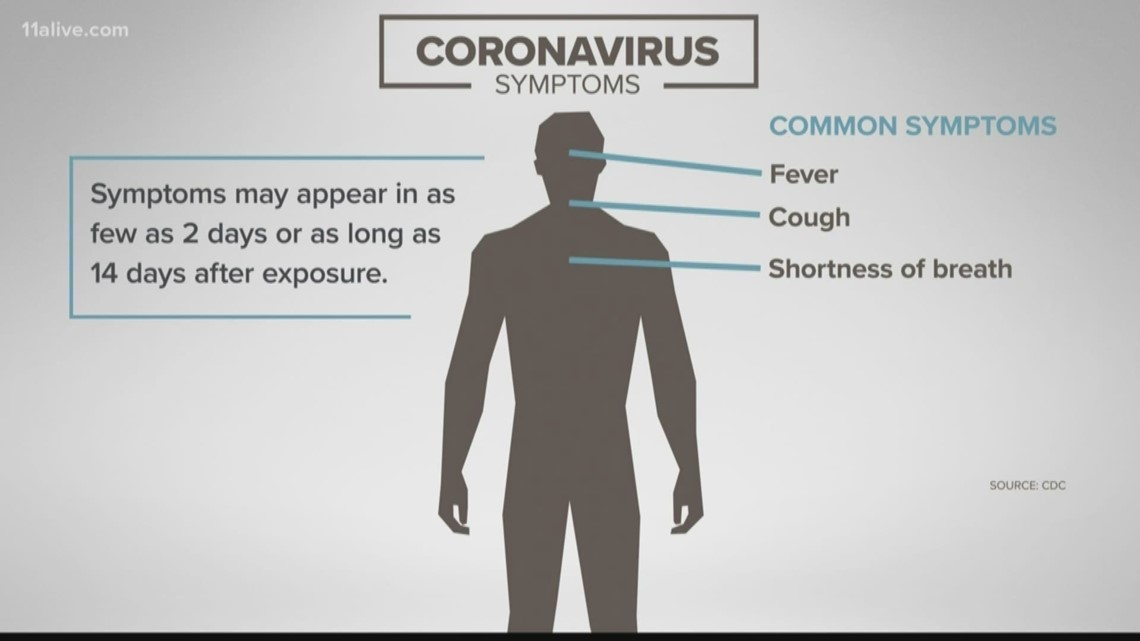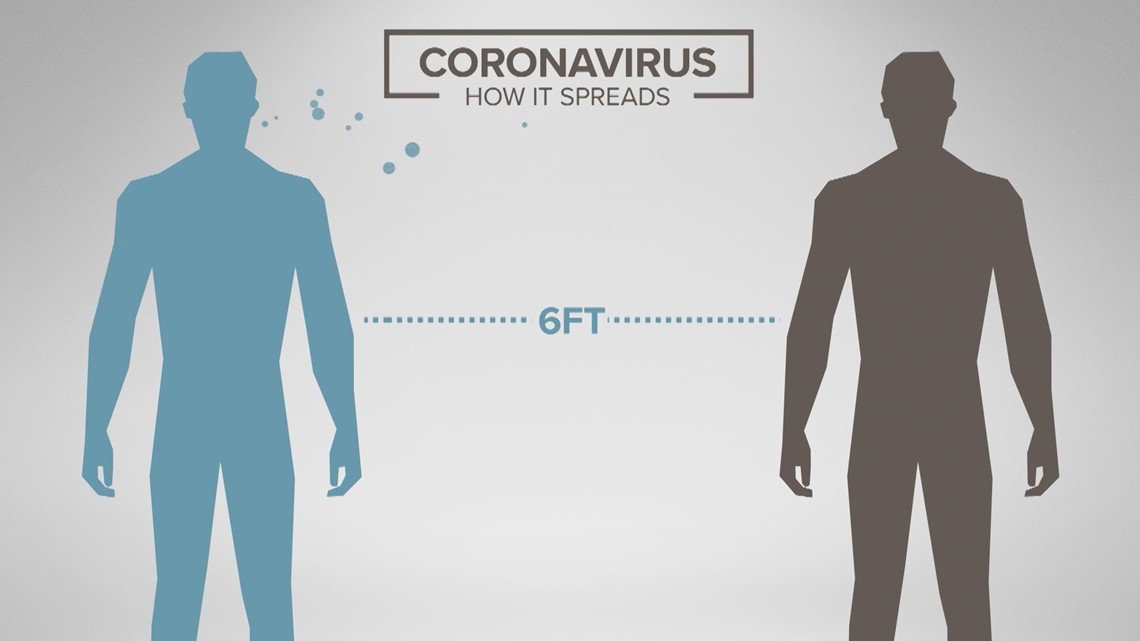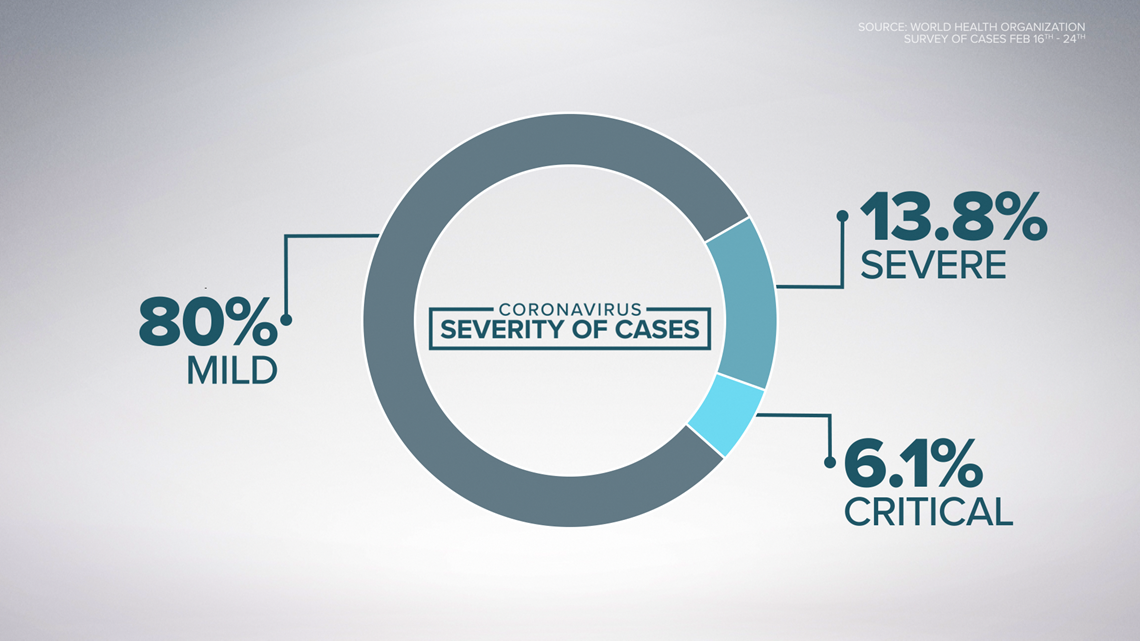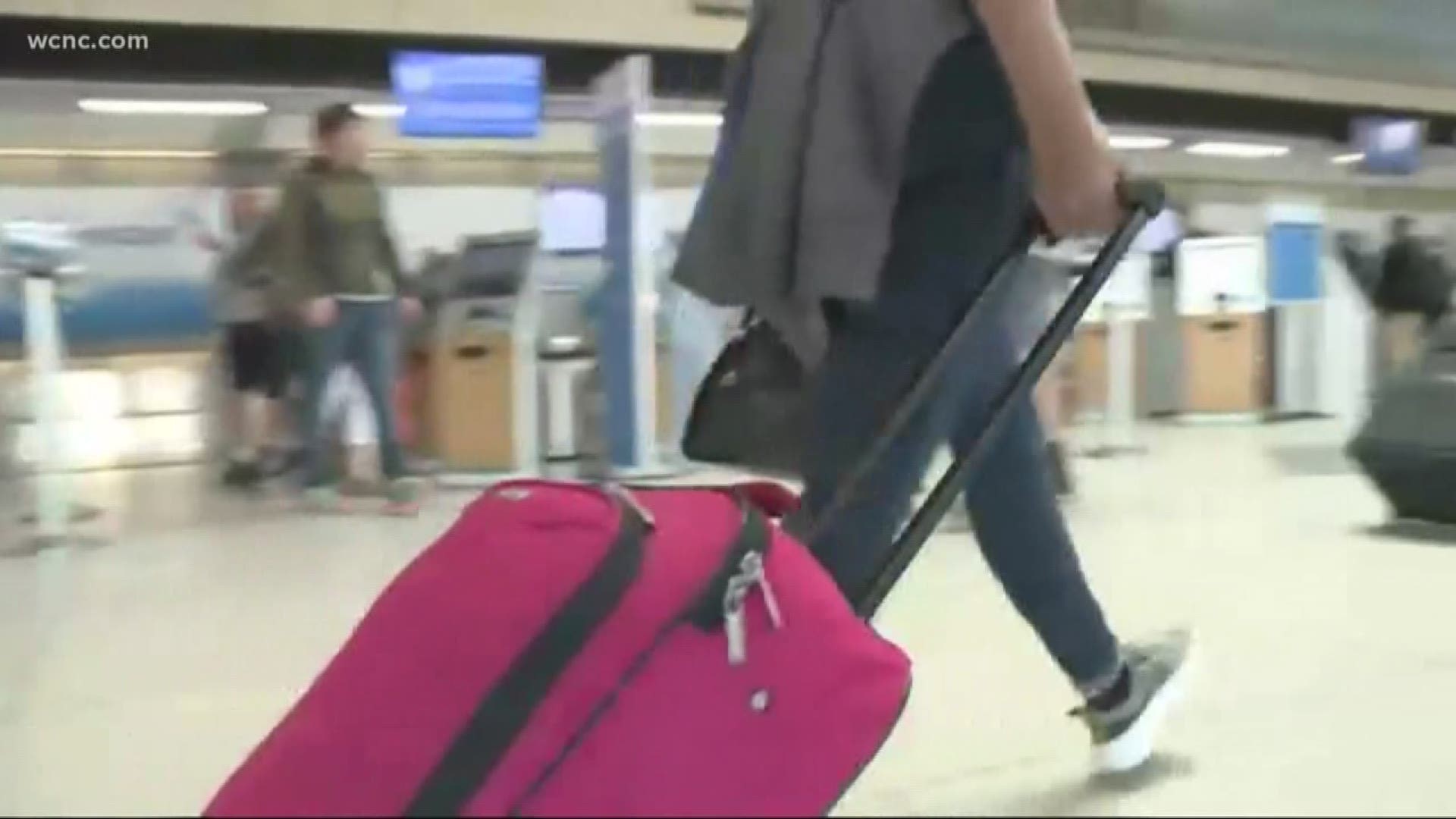CHARLOTTE, N.C. —
IS THE CORONAVIRUS IN NORTH CAROLINA OR SOUTH CAROLINA?
There is one confirmed case and 15 presumptive cases of coronavirus in North Carolina. There are six confirmed and six presumptive positive cases of coronavirus in South Carolina.
Of the North Carolina cases, Health Director Gibbie Harris confirmed two are in Mecklenburg County. At a press conference Thursday, Harris said it's unclear if one of these positive tests is a person who lives in the county, but there's at least one resident with a presumptive positive result. There is no recommendation for schools to close and Charlotte-Mecklenburg Schools Superintendent Earnest Winston said they've been working for three weeks to develop a plan in case schools need to close.
The first case in North Carolina was confirmed on March 3. A second case was identified on March 6, and five additional cases were identified by the state on March 9. Health officials said every person who tested positive in North Carolina has been isolated in their homes. Gov. Roy Cooper declared a state of emergency Tuesday and said health officials are doing "everything we can" to get more supplies and tests available. During Tuesday's announcement, Cooper said there are enough tests for 300 more people but labs are working on an alternative testing method.
The second case of COVID-19 coronavirus was a man from Chatham County who traveled to Italy in February. The next five cases, which were identified on March 9, were all linked to a conference in Boston last month. They are not related to the first two cases in North Carolina.
Schools across the Charlotte area are taking measures to prevent the possible spread of coronavirus, including Charlotte-Mecklenburg Schools. All field trips within and outside Mecklenburg County are canceled indefinitely. As of Wednesday, all sporting events and competitions will go on as scheduled.
WHICH COUNTRIES/STATES HAVE CORONAVIRUS CASES
COVID-19 coronavirus cases have been reported in countries around the world, including the United States.
A project from the Johns Hopkins Center for Systems Science and Engineering lets you track COVID-19 cases around the world using an interactive map. The map is best viewed on a desktop. Click here for a larger view from Johns Hopkins University.
CORONAVIRUS HOTLINES
Mecklenburg County: 980-314-9400
North Carolina: 866-462-3821
South Carolina: 855-472-3432
The Associated Press has also created a map which tracks current cases in the United States, based on the data collected by Johns Hopkins.
HERE ARE THE SYMPTOMS OF CORONAVIRUS
According to the Centers for Disease Control, coronavirus patients have reported a mild to severe respiratory illness, with symptoms of cough, fever, and shortness of breath.
The CDC says those symptoms can appear within two days, or as long as 14 days after exposure.


HOW DOES THE VIRUS SPREAD?
The CDC says the COVID-19 coronavirus is believed to spread mainly from person-to-person, particularly between people in close contact with one another (within about 6 feet) through respiratory droplets produced by coughing or sneezing. The CDC says those droplets be inhaled or end up in the mouths or noses of people who are nearby.


The CDC adds that people infected with COVID-19 are thought to be most contagious when they are most symptomatic (or in other words, when they are the sickest).
"Some spread might be possible before people show symptoms; there have been reports of this occurring with this new coronavirus, but this is not thought to be the main way the virus spreads," the CDC says on its website.
"It may be possible that a person can get COVID-19 by touching a surface or object that has the virus on it and then touching their own mouth, nose, or possibly their eyes, but this is not thought to be the main way the virus spreads," the CDC says.
HOW IS CORONAVIRUS TREATED?
According to the CDC, at this time "there is no specific antiviral treatment recommended for COVID-19. People with COVID-19 should receive supportive care to help relieve symptoms."
The CDC advises people who think they have been exposed to contact their health care provider.
MASKS ARE ONLY FOR PEOPLE WHO ARE ALREADY SICK
The Surgeon General of the United States published a strongly worded tweet telling people to "STOP BUYING MASKS!"
According to the Centers for Disease Control, masks are not effective for someone who's healthy, and won't protect them from catching respiratory diseases, including COVID-19 coronavirus.
Facemasks are recommended for people who are showing symptoms, because they can help prevent the spread of disease from them to others. Facemasks are also considered crucial for health care workers and caregivers.
HOW DOCTORS TEST FOR CORONAVIRUS
According to CDC guidance for health professionals published in mid-February, doctors are advised to do a swab of a patient's nose and throat, as well as collecting a sputum sample. The sample is then sent for lab testing.
HOW SEVERE IS THE ILLNESS?
Numbers from the World Health Organization showed a survey of coronavirus patients from Feb. 16-24 showed mild symptoms in 80% of cases, with severe illness reported in 13.8% of cases, and critical illness in 6.1% of cases.


HERE'S WHAT YOU CAN DO TO PREVENT SPREADING THE VIRUS
The CDC recommends these everyday lifestyle tips for avoiding the spread of any type of respiratory virus:
• Avoid close contact with people who are sick.
• Avoid touching your eyes, nose, and mouth with unwashed hands.
• Wash your hands often with soap and water for at least 20 seconds. Use an alcohol-based hand sanitizer that contains at least 60% alcohol if soap and water are not available.
• Clean and disinfect frequently touched objects and surfaces using a regular household cleaning spray or wipe.
HERE'S WHAT YOU CAN DO IF YOU ARE SICK
The CDC says to take these steps to avoid spreading a respiratory illness:
• Stay home when you are sick, except to get medical care.
• Call ahead before visiting your doctor, so the office can take steps to keep other people from being exposed.
• Separate yourself from other people and animals in your home.
• Cover your cough or sneeze with a tissue, then throw the tissue in the trash.
• Clean and disinfect frequently touched objects and surfaces.
• Avoid sharing personal household items like cups, towels or bedding.
HERE'S WHAT YOU CAN DO TO PREPARE
Infectious disease specialist Dr. Michael Osterholm says it's a good idea to stock up on essential medication, supplies and non-perishable food, but he said the first thing everyone should do is talk to your loved ones and make a plan.
"What are they going to do if they get ill? Who will they call? How will they access the medical care system? Who is watching out for grandma?" Osterholm said. "We need, right now, to really develop communication plans so that we're checking on people every day."
The CDC also recommends creating a household plan of action as part of your preparations:
• Meet with household members, relatives, and even neighbors about emergency planning.
• Plan ways to care for those who might be at greater risk.
• Create an emergency contact list.
• Practice good personal health habits.
• Choose a room in your home that can be used to separate someone who is sick from those who are healthy.
• Learn the emergency plans for your child's school or daycare.
• Learn about your employer's emergency operations plan.
WHAT ABOUT PETS?
The CDC says anyone sick with COVID-19 coronavirus should restrict contact around pets just like people.
"Although there have not been reports of pets or other animals becoming sick with COVID-19, it is still recommended that people sick with COVID-19 limit contact with animals until more information is known about the virus," the CDC says.
Researchers in Hong Kong recently reported that cats and dogs can't pass the coronavirus to humans, but they can test positive for low levels of the pathogen if they catch it from their owner.
STAY INFORMED
The Centers for Disease Control has an in-depth frequently asked questions (FAQ) section on its website with additional answers for people looking for more information about COVID-19 coronavirus.
WCNC Charlotte's coverage of the coronavirus is rooted in Facts, not Fear. Visit wcnc.com/coronavirus for comprehensive coverage, learn more about the symptoms, and keep tabs on the cases around the world here. Have a question? Text it to us at 704-329-3600.

